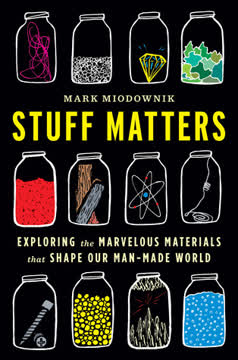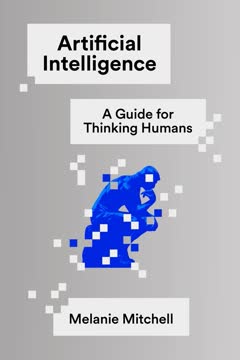Key Takeaways
1. Solitude fosters creativity and self-discovery
It is only when alone (that is to say, in the presence of someone) that the infant can discover his personal life.
Capacity for solitude: The ability to be alone is a crucial aspect of emotional maturity and creative development. This skill is nurtured in childhood when a child feels secure enough to explore their inner world while a caregiver is present but not intrusive.
Benefits of solitude:
- Facilitates self-reflection and introspection
- Allows for uninterrupted focus on creative pursuits
- Promotes the development of a unique voice and perspective
- Enables processing of experiences and emotions
Solitude should not be confused with loneliness or social isolation. Rather, it is a chosen state that allows individuals to connect with their innermost thoughts and feelings, fostering personal growth and creative expression.
2. Early loss and isolation can fuel imagination
Writing is not a profession but a vocation of unhappiness.
Compensatory creativity: Early experiences of loss, separation, or isolation can lead individuals to develop rich inner worlds as a coping mechanism. This often translates into heightened creativity and imaginative capacity in adulthood.
Examples of writers influenced by early loss:
- Edward Lear: Separated from his mother at age four
- Rudyard Kipling: Sent away from his parents at age six
- P.G. Wodehouse: Passed between caretakers in early childhood
While these experiences can be traumatic, they can also serve as a catalyst for developing a unique perspective and a powerful imaginative faculty. The ability to create imaginary worlds or characters can become a source of comfort and a means of processing complex emotions.
3. Depression and bereavement can inspire creative repair
Writing is a form of therapy; sometimes I wonder how all those who do not write, compose or paint can manage to escape the madness, the melancholia, the panic fear which is inherent in the human situation.
Creative healing: Many artists and writers use their work as a means of processing grief, loss, and depression. This creative process can serve as a form of self-therapy and emotional repair.
Functions of creative expression in coping:
- Provides a sense of control and mastery
- Allows for the exploration and integration of difficult emotions
- Creates meaning from painful experiences
- Offers a way to communicate complex feelings
Notable examples include Tennyson's "In Memoriam," written in response to the death of his friend, and the late works of Beethoven, composed as he grappled with deafness and isolation.
4. The search for coherence drives introverted creators
It is good that I did not let myself be influenced.
Pattern-seeking minds: Highly introverted creators often exhibit a strong drive to find order, coherence, and meaning in their inner and outer worlds. This quest for understanding can become the primary focus of their work and life.
Characteristics of introverted creators:
- Intense focus on internal thought processes
- Preference for solitude and minimal social interaction
- Strong desire for autonomy and independence
- Tendency to develop comprehensive systems or theories
Examples include philosophers like Kant and Wittgenstein, who devoted their lives to developing coherent philosophical systems, often at the expense of personal relationships.
5. Interests and work can provide fulfillment beyond relationships
Wherefore I perceive that there is nothing better, than that a man should rejoice in his own works; for that is his portion: for who shall bring him to see what shall be after him?
Alternative sources of meaning: While interpersonal relationships are often emphasized as the primary source of life satisfaction, many individuals find deep fulfillment through their work, interests, and creative pursuits.
Ways work and interests contribute to well-being:
- Provide a sense of purpose and direction
- Offer opportunities for personal growth and self-expression
- Create a sense of mastery and accomplishment
- Allow for the development of a unique identity
This perspective challenges the notion that close relationships are the only path to happiness and suggests that a balanced life can include both personal connections and individual pursuits.
6. Creative individuals often experience distinct developmental periods
Nothing is conceded to the listener, no attempt is made to capture his attention or hold his interest. Instead the composer communes with himself or contemplates his vision of reality, thinking (as it were) aloud and concerned only with the pure essence of his own thoughts and with the musical processes from which that thought itself is often indistinguishable.
Creative evolution: Many artists and thinkers experience distinct phases in their creative development, often categorized as early, middle, and late periods.
Characteristics of creative periods:
- Early: Learning and mastering techniques, influenced by predecessors
- Middle: Developing a unique voice, often focused on communication and recognition
- Late: Increased introspection, experimentation with form, less concern for audience
Examples include Beethoven's late string quartets and Henry James's final novels, which show a marked departure from earlier styles and a focus on internal exploration rather than external communication.
7. The pursuit of wholeness is a fundamental human drive
Love is simply the name for the desire and pursuit of the whole.
Unifying experiences: The human desire for wholeness manifests in various ways, from romantic love to mystical experiences of unity with the universe.
Types of unifying experiences:
- Falling in love
- Religious or spiritual ecstasy
- Moments of profound artistic or scientific insight
- Feelings of connection with nature
These experiences share common elements, such as a sense of transcendence, loss of ego boundaries, and a feeling of harmony with oneself and the world. While often triggered by external factors, they reflect an internal state of integration and completeness that many see as the ultimate goal of human existence.
Last updated:
FAQ
What's Solitude: A Return to the Self about?
- Exploration of Solitude's Value: The book examines how solitude fosters creativity and self-discovery, contrasting it with the modern focus on interpersonal relationships.
- Creative Individuals' Preference: Storr highlights how thinkers like Descartes and Newton thrived in solitude, suggesting it can be a source of happiness and fulfillment.
- Critique of Psychoanalysis: The author challenges the psychoanalytic view that happiness is solely derived from relationships, emphasizing the importance of personal interests and solitary pursuits.
Why should I read Solitude: A Return to the Self?
- Insight into Creativity: The book offers valuable insights into how solitude enhances creativity, essential for anyone interested in the creative process.
- Challenging Conventional Wisdom: It questions the belief that happiness is primarily found in relationships, encouraging a reevaluation of solitude's role in personal fulfillment.
- Historical and Philosophical Context: Storr uses historical examples and philosophical arguments to enrich understanding of solitude's role throughout history.
What are the key takeaways of Solitude: A Return to the Self?
- Solitude as Happiness: Solitude can lead to profound happiness and self-understanding, contrary to the belief that it equates to loneliness.
- Balance in Life: Storr emphasizes the need for a balance between personal relationships and impersonal interests for a fulfilling life.
- Creativity in Solitude: Many creative individuals find their best work emerges from solitude, highlighting its importance for personal growth.
What are the best quotes from Solitude: A Return to the Self and what do they mean?
- “Conversation enriches the understanding...”: This quote underscores that while social interactions are valuable, solitude is essential for deep thinking and creativity.
- “The burden of value...”: Storr suggests that over-relying on relationships for happiness can lead to disappointment, advocating for a broader view of fulfillment.
- “We must reserve a little back-shop...”: Emphasizes the necessity of personal space and time for self-reflection, vital for mental health and creativity.
How does Anthony Storr define solitude in Solitude: A Return to the Self?
- Positive State: Solitude is defined as a state of being alone that can lead to self-discovery and creativity, not as loneliness.
- Contrast with Isolation: Solitude is a choice fostering growth, while isolation is often imposed and detrimental.
- Essential for Creativity: Solitude is crucial for the creative process, allowing deep engagement with thoughts and ideas.
How does Solitude: A Return to the Self relate solitude to creativity?
- Catalyst for Creativity: Solitude acts as a catalyst, allowing individuals to tap into their imagination and produce their best work.
- Psychological Mechanism: Solitude enables deep reflection and imaginative thought, often hindered in social settings.
- Historical Examples: Figures like Kafka and Beethoven illustrate how isolation can lead to significant artistic breakthroughs.
How does Anthony Storr critique modern views on relationships in Solitude: A Return to the Self?
- Overemphasis on Relationships: Storr critiques the belief that happiness is solely derived from intimate relationships, calling it limiting.
- Value of Impersonal Interests: He emphasizes the importance of solitary pursuits, suggesting they provide significant fulfillment.
- Cultural Shift: Societal changes have increased anxiety about relationships, advocating for a balanced view that includes solitude.
What psychological theories does Anthony Storr reference in Solitude: A Return to the Self?
- Psychoanalytic Critique: Storr critiques Freud's focus on relationships as the primary happiness source, highlighting solitude's value.
- Jungian Concepts: He incorporates Jung's ideas of introversion and extraversion, exploring how temperaments relate to solitude.
- Object-Relations Theory: Discusses how early relationships shape personality, arguing solitude helps reconcile past experiences.
How does Solitude: A Return to the Self address the concept of introversion?
- Introversion and Creativity: Introverts may thrive in solitude, using it for creativity and reflection, finding fulfillment in their inner worlds.
- Psychological Resilience: Introverts develop resilience through solitary experiences, leading to deeper self-understanding.
- Cultural Implications: Storr argues society undervalues introverts' contributions, advocating for appreciating solitude's strengths.
How does childhood experience play into the themes of Solitude: A Return to the Self?
- Impact of Isolation: Childhood isolation can influence creativity, with solitary children developing rich inner lives.
- Formation of Identity: Solitude helps children form a coherent sense of self, crucial for development.
- Long-term Effects: Childhood solitude impacts adult relationships and creativity, highlighting the importance of understanding these dynamics.
How does Anthony Storr differentiate between solitude and loneliness in Solitude: A Return to the Self?
- Solitude as Positive: Solitude is a positive state for self-reflection and creativity, unlike loneliness, which is negative and isolating.
- Psychological Benefits: Solitude increases self-awareness and emotional clarity, while loneliness can lead to depression.
- Coping Mechanisms: Embracing solitude as a coping mechanism can transform it into a source of strength, reducing loneliness.
What is the significance of the title Solitude: A Return to the Self?
- Self-Discovery: The title reflects using solitude to reconnect with one's true self, fostering personal growth.
- Cultural Commentary: Challenges society's emphasis on social interaction, urging reconsideration of solitude's value.
- Integration of Experiences: Suggests integrating past experiences through solitude, leading to a coherent and fulfilled identity.
Review Summary
Solitude is praised for its exploration of the benefits of being alone, particularly for creative individuals. Readers appreciate Storr's challenge to the idea that relationships are the sole source of fulfillment. The book's analysis of historical figures and psychological theories is seen as insightful, though some find it repetitive or overly focused on psychoanalysis. Many readers relate personally to the content, finding validation for their own solitary tendencies. Critics note the book's academic tone and lack of practical advice for average people.
Similar Books





Download PDF
Download EPUB
.epub digital book format is ideal for reading ebooks on phones, tablets, and e-readers.




